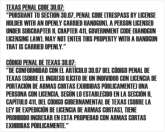By Stacey Doud
The Texas A&M School of Law hosted a webinar on July 16, which provided information and answers about legal options regarding landlord-tenant law, mortgage and housing law when the US government’s CARES Act expired on July 31, though its original expiration date was set for July 25.
This Webinar is part of a series of free presentations on topics that the CARES Act covers, but may or may not be useful after its expiration date. Other topics included in this series are: Business bankruptcy; employment issues; legal ethics; private equity concerns; Human Rights at the Border; and Changing Technology in Immigration Court during the COVID-19 pandemic.
For information on future Webinars and their topics, visit the Texas A&M School of Law’s website.
The presenters, who are all considered to be experts in their individual law specialties, addressed these concerns and answered some popular pre-submitted questions.
The CARES (Coronavirus Aid, Relief and Economic Security) Act was created as an economic stimulus bill, which was signed into law In March by President Trump. This law allocated $2.2 trillion in response to the financial and economic hardships that the COVID-19 pandemic caused in the US.
Part of the CARES Act temporarily suspended the process of foreclosures, which was called a foreclosure moratorium, for 60 days (from March 18 until May 18). This part of the CARES Act protected residents with federally backed mortgages from losing their homes to foreclosure. Some entities that qualified for federally backed mortgages were: Government Sponsored Enterprises (GSEs), such as Fannie Mae and Freddie Mac; Federal Housing Administration (FHA); US Department of Housing and Urban Development (HUD); Veterans Administration (VA); and the US Department of Agriculture (USDA).
“As the moratorium expired on May 18, homeowners with federally-backed mortgages could request, from their lenders, a forbearance of 108 days, and then they could ask for an extension for up to 360 days,” explained Lisa Alexander, who is a Professor of Law at Texas A&M, as well as the Co-Director for the Program of Real Estate and Community Development Law.
“The eviction moratorium was another thing the CARES Act provided for renters. So, for 120 days, from March 27 to July 31, renters cannot not be evicted from their homes. So, that protection is basically going to end on July 31. There are local and state moratoria on eviction, but this was the federal moratorium, and it’s going to be ending in a few days. What’s true is that landlords of covered properties, without 30 days’ notice, may not evict tenants after the moratorium period expires,” Alexander said.
To qualify as a “covered property,” one of the following conditions must be met: Participation in a covered housing program as defined by the Violence Against Women Act; participation in the rural housing voucher program under section 542 of the Housing Act of 1949; the mortgage loan is federally backed; or the mortgage terms fall under a federally backed multifamily mortgage loan.
“In Dallas County, the eviction moratorium ended on May 18, but they extended it to June 15,” said Stuart Campbell, who represented Legal Aid of Northwest Texas. Unfortunately, they started allowing eviction hearings to start in June and they were heard up until the beginning of July. Though now, on a county level, there are no new hearings scheduled, and there won’t be until after August 5.
“That’s a lot of weird dates with a bunch of sliding scales. But basically, what’s going on is that the ones that were filed during the moratorium are going to be heard by the courts as usual cases. The new filings as of this month are going to be postponed until after August. So, if you’re in that window between June 15 and the beginning of July, unfortunately your eviction hearing is most likely to be heard.
“On a city level in Dallas, City Council passed their Emergency Eviction Ordinance, which only affects folks in the city limits of Dallas, but not the whole of Dallas County. It is for non-payment of rent evictions only and it requires that the landlord give a 21-day notice of proposed evictions, which gives the tenant some time to respond,” Campbell explained.
Even though the CARES Act expired on July 31, renters and mortgagees still have options to keep them away from eviction or foreclosure.



 In our lifetimes, the world has changed tremendously, and not all changes have been positive. Mankind’s treatment of one another has deteriorated to include ideological attacks on individuals for the sake of terror alone.
In our lifetimes, the world has changed tremendously, and not all changes have been positive. Mankind’s treatment of one another has deteriorated to include ideological attacks on individuals for the sake of terror alone.







